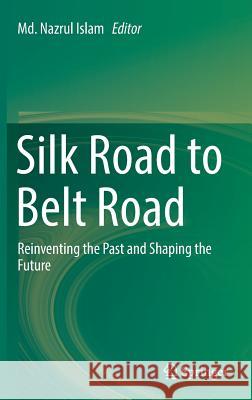Silk Road to Belt Road: Reinventing the Past and Shaping the Future » książka
topmenu
Silk Road to Belt Road: Reinventing the Past and Shaping the Future
ISBN-13: 9789811329975 / Angielski / Twarda / 2019 / 350 str.
Kategorie BISAC:
Wydawca:
Springer
Język:
Angielski
ISBN-13:
9789811329975
Rok wydania:
2019
Wydanie:
2019
Ilość stron:
350
Waga:
0.75 kg
Wymiary:
16.1 x 24.2 x 2.9
Oprawa:
Twarda
Wolumenów:
01
Dodatkowe informacje:
Wydanie ilustrowane











